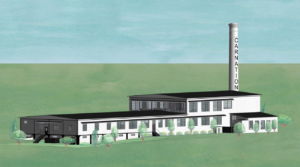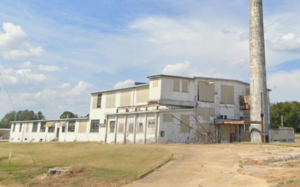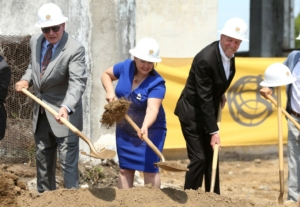Success Stories
Shawn Poynter / There Is More Work To Be Done
Shawn Poynter / There Is More Work To Be Done
 The Carnation Milk plant in Tupelo, Mississippi, has sat vacant since 1972. In about a year, that will change when 33 low-income senior households move into new affordable homes in this old factory. This May, Old Historic Carnation, LP broke ground on Carnation Village, a $16.8 million adaptive reuse project to convert the abandoned factory into 33 units of affordable senior housing. These units are sorely needed in Tupelo, a high-poverty community which needs over 1,500 additional senior affordable housing units. With a $325,000 loan from The Housing Assistance Council (HAC)—and two sixth-month extensions to that loan—the developer successfully navigated a predevelopment process mired in construction cost increases and unexpected funding gaps. Here’s how:
The Carnation Milk plant in Tupelo, Mississippi, has sat vacant since 1972. In about a year, that will change when 33 low-income senior households move into new affordable homes in this old factory. This May, Old Historic Carnation, LP broke ground on Carnation Village, a $16.8 million adaptive reuse project to convert the abandoned factory into 33 units of affordable senior housing. These units are sorely needed in Tupelo, a high-poverty community which needs over 1,500 additional senior affordable housing units. With a $325,000 loan from The Housing Assistance Council (HAC)—and two sixth-month extensions to that loan—the developer successfully navigated a predevelopment process mired in construction cost increases and unexpected funding gaps. Here’s how:
 The original project scope called for 50 units: 25 from an adaptive re-use of the plant itself and another 25 in a second building to be constructed next door. When our loan closed in July 2021, the project budget totaled about $12.7 million, to be funded by Low Income Housing Tax Credits, Historic Tax Credits, and a $1.6 million equity investment. Our financing covered the predevelopment costs of the work required to get to construction financing closing including environmental testing, historic preservation approvals, tax credit application and reservation fees, a market study, and an appraisal.
The original project scope called for 50 units: 25 from an adaptive re-use of the plant itself and another 25 in a second building to be constructed next door. When our loan closed in July 2021, the project budget totaled about $12.7 million, to be funded by Low Income Housing Tax Credits, Historic Tax Credits, and a $1.6 million equity investment. Our financing covered the predevelopment costs of the work required to get to construction financing closing including environmental testing, historic preservation approvals, tax credit application and reservation fees, a market study, and an appraisal.
In the fall of 2021, increases in construction costs left Old Historic Carnation with a $3.8 million funding gap. By the time they applied for and received more tax credits from the Mississippi Housing Corporation (MHC), added a $1 million mortgage, received approval from the National Park Service, and updated the construction bids, costs had increased by a further $4.5 million. In the space of less than a year, the construction cost for the project nearly doubled.
Because HAC can be a patient lender, we extended our loan by six months to give the developer time to solve the problem. Old Historic Carnation applied for and received another tax credit increase from the state, reduced costs with value engineering measures, and increased the deferred developer fee by almost $2 million.
Construction costs increased again in the summer of 2022, causing the equity investor to back out of the project. The developer went back to the drawing board once again and reduced the project’s scope to 33 units, all affordable to households making less than 80% of the area median income (AMI). Plus, 26 would also be affordable to households under 60% AMI. With an additional loan extension from HAC, Old Historic Carnation secured approval of the new scope by MHC, obtained the necessary building permits, and have now begun demolition.

HAC Loan Office Alison Duncan (center) breaks ground for Carnation Village. Photo by Adam Robison, the Daily Journal.
On March 21st, Old Historic Carnation, LP closed on construction financing and repaid our predevelopment loan in full. And on May 31st, the project broke ground. Old Historic Carnation’s persistence and creativity made this project a success. But it was HAC’s flexibility that supported them as they went through the process of raising additional funds three times to make the project work. The Carnation Village project showcases how the ingenuity of a local housing developer, solid working relationships with private, state and federal funders, and flexible and patient HAC financing all add up to bring difficult and important projects to fruition. Fifty-one years ago, Carnation Milk closed its factory in Tupelo, Mississippi. Soon, thirty-three low-income, senior households will be able to call it home.
HAC is proud to be a critical part of this project and we look forward to watching it develop.

 HAC’s 2022 Annual Report
HAC’s 2022 Annual Report